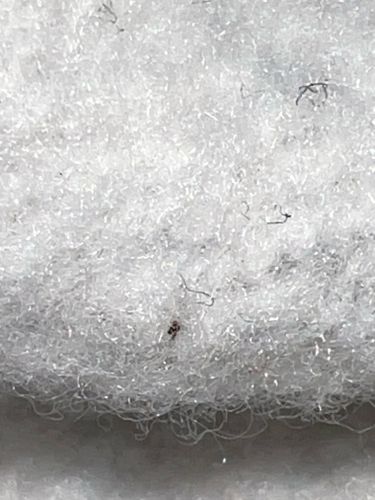Booklouse
Scientific Name: Psocoptera (order), various genera
Order & Family: Order Psocoptera, Family Liposcelididae (a common family for indoor booklice)
Size: 0.5 to 2 mm (very small)

Natural Habitat
Damp, humid environments, often found indoors in old books, papers, stored food products, furniture, or wall voids where mold/mildew is present. Also found outdoors under bark or in leaf litter.
Diet & Feeding
Primarily feed on mold, mildew, fungi, starch, glue (book bindings), dried microscopic plant and animal matter. They do not bite humans or pets.
Behavior Patterns
Nocturnal, cryptic, and often go unnoticed due to their small size. They are attracted to humidity and food sources, breeding rapidly in favorable conditions. They are not social insects, but infestations can involve many individuals.
Risks & Benefits
Generally considered a nuisance pest in homes and libraries, as they can damage books, papers, and stored food products by feeding on mold and starch. They do not transmit diseases, bite, or sting. In natural ecosystems, they play a minor role as decomposers of organic matter.
Identified on: 10/22/2025